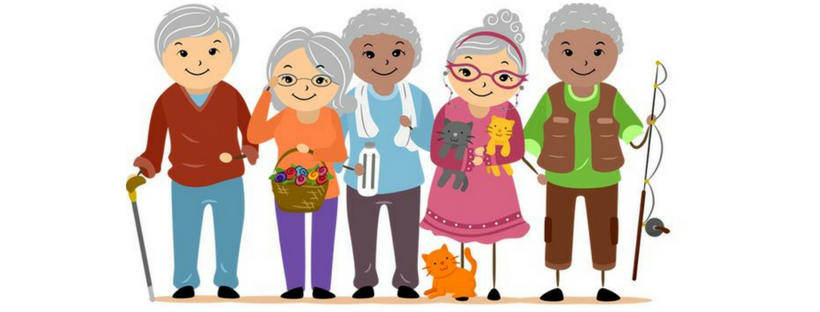There is a lot of uncertainty around growing old, and we tend to be extremely cynical about it. This attitude is reflected in our behaviour with older people and also affects our own life poorly.
But, the ups and downs in old age are inevitable, and we must be open to dealing with them as they come.
To make our outlook on growing old positive and constructive, here is an attempt to challenge some of our misconceptions associated with ageing.
1) Ageing means declining health and/or disability
It is the choices we make throughout our lifetime that determine our health in old age, not our age itself. Our poor eating and sleeping habits, lack of physical activity, genetic predispositions, increased consumption of alcohol, and smoking, are some things that could cause illnesses in old age. Indeed, the body may lose its ability to completely recover from illnesses, but a lot of these can be avoided by leading a healthier life. It’s never too late to start living healthy!
2) Memory loss is an inevitable part of ageing
Memory loss is not a given in old age. We may take longer to recall someone’s name, but significant memory loss, or an illness like dementia, is not inevitable. We can work towards keeping the hippocampus in the brain, which is responsible for memory, healthy in order to avoid such problems. Activities such as solving puzzles, crosswords, reading books, and writing, can help keep the brain stimulated. Eating healthy and being physically active is also a crucial part of keeping our brains healthy.
3) Older people have no interest in sex
Sexual activity remains a very common part of our lives as we age. We might prefer hugs, kisses, and cuddles from our partners over sexual intercourse, but the need for intimacy does not diminish. In fact, as we age, our definition of sexual activity broadens and we start appreciating other aspects of sexual intimacy such as the bond of trust, friendship and support.
4) All old people are senile and have nothing left to give back to the society
What we may lose in terms of physical ability, we make up for with our lifetime of experiences and years of wisdom. We can make valuable contributions to the community around us because of our days in the sun. We are fortunate to live in a society where most older people are treated with love and respect, and are crucial parts of the family system. There is no guarantee about health, but we must look forward to spending time with the younger generations, talk to them about our experiences, and also learn from theirs.
5) You cannot teach an old dog new tricks
This stereotype is most commonly associated with older people. However, with age, we tend to have more free time on our hands, and we also happen to spend a lot more time with younger people, such as our children and grandchildren. We therefore learn how to be open to new ideas, and also develop new interests as a way to spend more time with our loved ones.
Our attitude towards old age is a determinant of how we age. With a negative and cynical attitude, we are more prone to becoming depressed, anxious and stressed in our old age. We may also tend to lose our motivation to be optimistic, and may not cope well with changes. On the other hand, if we were to look forward to that phase of our life, and prepare ourselves emotionally and physically for it, we would cope better with adversities, and would also find a way to remain happy.
Authorship: Shreya Agarwal, psychology student at Flame University.

